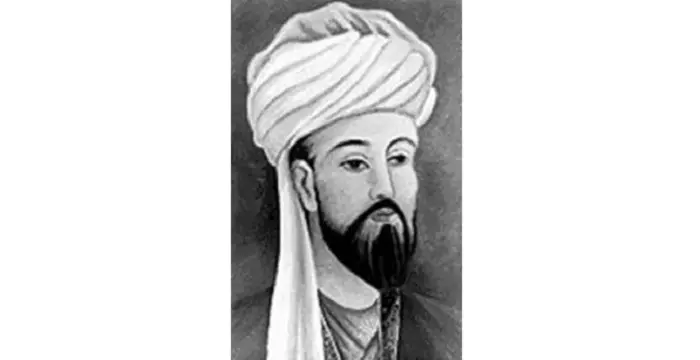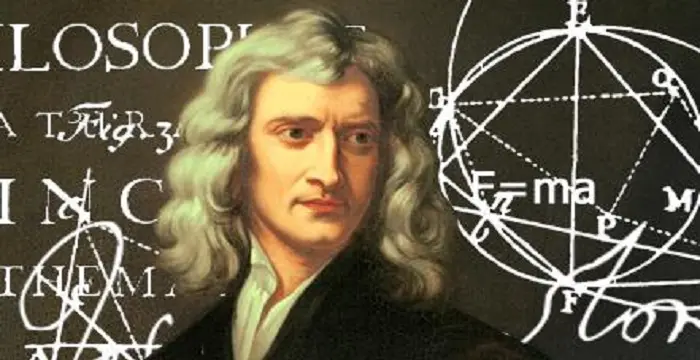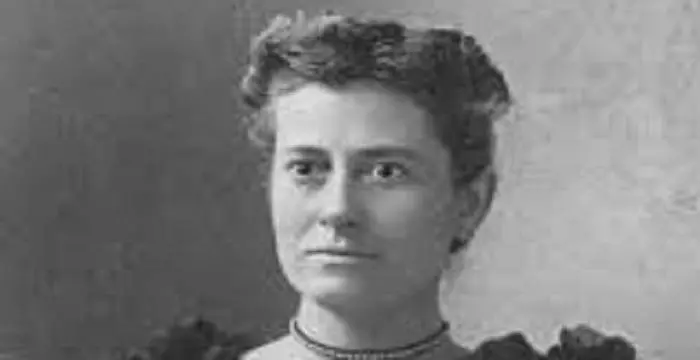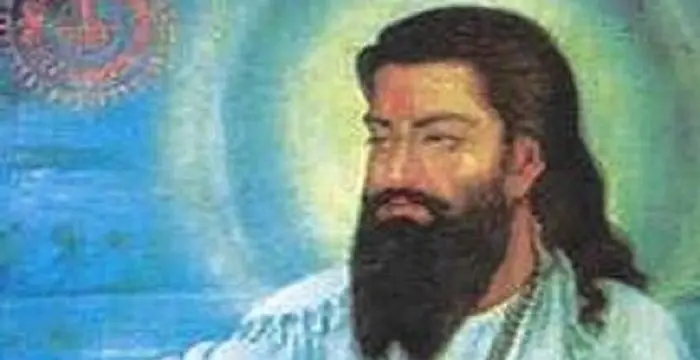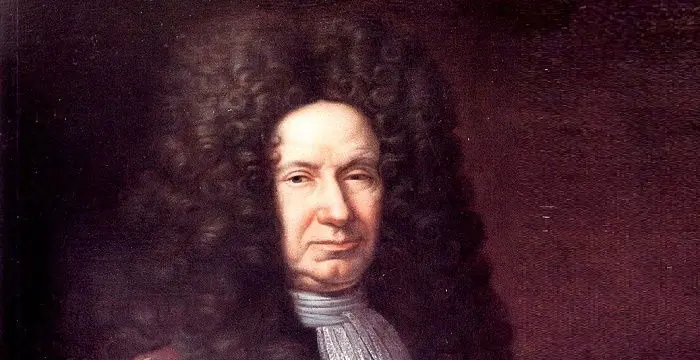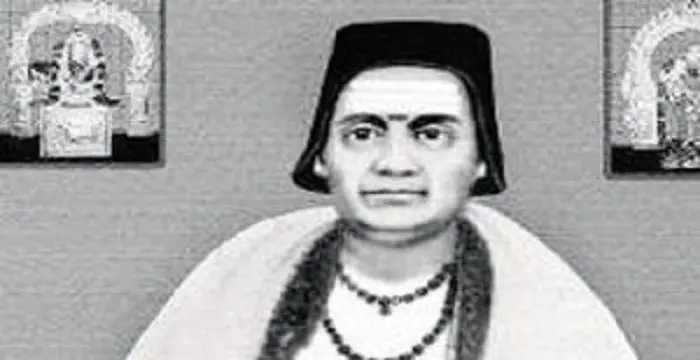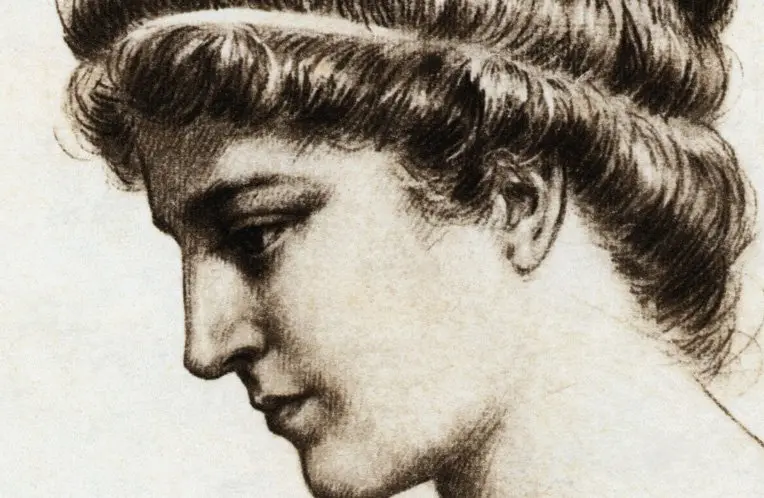
Hypatia - Intellectuals & Academics, Family and Childhood
Hypatia's Personal Details
Hypatia, also known as Hypatia of Alexandria, was a famed inventor, astronomer, mathematician and philosopher from Egypt
| Information | Detail |
|---|---|
| Birthday | 370 |
| Died on | January 1, 415 |
| Nationality | Ancient Roman |
| Famous | Intellectuals & Academics, Philosophers, Mathematicians, Astronomers, Writers |
| Birth Place | Alexandria, Province of Egypt, Eastern Roman Empire |
| Gender | Female |
| Father | Theon of Alexandria |
| Born in | Alexandria, Province of Egypt, Eastern Roman Empire |
| Famous as | Mathematician, Philosopher, Astronomer, Writer |
| Died at Age | 45 |
// Famous Astronomers
Jabir Ibn Hayyan
Jabir Ibn Hayyan was a medieval era polymath. Check out this biography to know about his life, works and achievements.
Isaac Newton
Isaac Newton was an English scientist and mathematician, who discovered gravitation and Newtonian Mechanics. Read this biography to find more on his life.
Henrietta Swan Leavitt
Henrietta Swan Leavitt was an American astronomer. Check out this biography to know about her childhood, family, personal life, discoveries, achievements, etc.
Hypatia's photo
Who is Hypatia?
Hypatia, also known as Hypatia of Alexandria, was a famed inventor, astronomer, mathematician and philosopher from Egypt, which was a part of the eastern part of the vast Roman Empire back then. She was the only child of Theon of Alexandria, who himself was a great mathematician and philosopher, adhering to the Pagan beliefs, which got him in the bad books of Christians. Against the norms back in those days, he brought up his daughter Hypatia as a son and taught her about philosophy, science, and mathematics and helped her increase her already sharp intellect. Hypatia, walking on her father’s footsteps, taught philosophy and mathematics in the Neo-Platonist school of Alexandria and among her pupils were almost all the sections of the society, namely Pagans and Christians. As she gained widespread fame as a mathematician and a scholar, her Paganism way of teaching and living got in the eyes of Christians and she started receiving threats. Meanwhile, among all the chaos, she kept teaching and providing her father a helping hand with his researches and her popularity spread around widely. Her being a woman contributed to the hatred she earned from the supporters of Christianity and she became victim of a painful death from a Christian mob while travelling down a street due to the allegations of spreading hatred and practicing black art.
// Famous Intellectuals & Academics
Bertil Gotthard Ohlin
Bertil Gotthard Ohlin was a famous Swedish economist. This biography profiles his childhood, family life & achievements.
Emily Greene Balch
Emily Greene Balch was an American economist, sociologist and pacifist who won the 1946 Nobel Peace Prize. This biography of Emily Greene Balch provides detailed information about her childhood, life, achievements, works & timeline.
Martin Buber
One of the greatest philosophers to have ever walked on earth, Martin Buber contributions to philosophy is a long-standing one. Explore all about his profile, childhood, life and timeline here.
Childhood & Early Life
Hypatia was born in Alexandria, Egypt but the exact date of her birth is widely debated. Almost all the accounts of her life signal that she was born somewhere around 350 CE.
Her father, Theon, was a prestigious scholar and a professor in the Alexandria University. He was a figure of new thought movements in those times, when the religion was considered to be the only way of life. He held strongly to his beliefs and became a controversial figure to advocate Paganism as a way of life, which roughly translated to following no religion.
Paganists became akin to evil according to Christian society’s standards, and her father remained all through his life, a keen advocate of science and mathematics, which, in a way condemned the existence of god. He brought up Hypatia with the same beliefs as him. Considering the fact that he had no son to carry on his legacy, he challenged patriarchy, and educated his daughter in science, philosophy, mathematics and astronomy. She, being a sharp kid, grasped everything quickly and became a scholar by the time she reached adulthood.
Her father also taught her swimming, horseback riding and physically trained her to remain fit and Hypatia carried those lessons with herself and turned out to be a strong willed, beautiful and healthy woman. Much else about her childhood is not known, as most of the accounts were deleted by the Christians who despised her and wanted to end her legacy just then and there. But it is understood that she read Plato and Socrates a lot and that shaped her life as a Pagan woman, who became a subject of hatred for the male dominated ancient Greek traditions.
Life & Works
Theon asked her to embark on travels across the vast empire, and while roaming around Athens, the city of artists and philosophers, she started studying mathematics at a school. Alexandria and Athens were rivals in terms of popularity as educational centres and she received an offer from her hometown to follow her father’s footsteps and teach at Alexandria, which she accepted. She started delivering lectures on philosophy and mathematics to students, who came to Egypt from far away corners of the world, to receive education.
Her apparent closeness with the popular philosopher Isidore gave rise to the rumours that they were in fact married, and her father arranged the match himself, being an admirer of Isidore. But the more reliable sources confirm that Isidore was born much after Hypatia’s death and that she remained virgin all her life.
Her teaching methods heavily referenced Diophantus’ ‘Arithmetica’ and she focused on the real life application of those methods. She also started giving lectures on Plato and Aristotle’s philosophies along with mathematics and her student base kept growing. Among them were Christians too, who opposed the philosophies devised by Plato, but her lectures had a deep impact on her students.
Along with teaching, Hypatia carried on her independent researches, and some in collaboration with her father.
The exact number of her works is still not known, as most of it was burned away but the word of mouth is a powerful thing, and through it, it is known that she provided unmatchable contribution to the ancient philosophy, which was later accounted by some of her students, under different names, to keep them safe. But somehow, some of her original work survived and it includes the treatise and discourse on ‘The conics of Apollonius’ and ‘Amagest’. These collections, other than putting her new philosophical beliefs out there, also talked about the positions of stars and planets in the solar system. -She also recorded her own analysis of her father’s works and used those documents to teach at the university. One of her ardent followers and a keenest student was Synesius of Cyrene, and most of the information about Hypatia’s life and works comes from the letters they both exchanged. Other facts mentioned in those letter credits Hypatia with creation of astrolabe and planesphere. Both the devices were way ahead of their time and were used to measure the movements of stars and the distillation of water.
Conflicts & Death
Most Greeks, including the powerful monarchs of the society along with the elite classes, followed Christianity and held it as the dominant school of belief. The neo-Platonists like Hypatia followed Paganism, which was in direct opposition to the beliefs of Christianity, which caused a lot of strife among the followers of those two distant beliefs. Christians believed that Pagans are going to destroy the mindset and faiths of younger generations and this caused hatred in them towards Hypatia, as her influence was already crossing the barriers of nationalities.
Aaround 412, when Cyril, a powerful monarch and ardent Christian saint, took control of Egypt in his hands and began plotting against Hypatia. Her Paganism belief also invited rumours and she was projected as ‘demonic’ and accused of carrying out satanic rituals and practicing black magic. This led to a widespread chaos and one day in 415 CE, while she was returning back on a chariot after delivering a lecture, she was attacked by a Christian mob. She was dragged out brutally from the chariot and stripped naked and got beaten to death.
This act of brutality was followed by the destruction of her books and all the material related to the controversial Pagan beliefs. Alexandria, a city which was first known as the centre for the open-minded people, became a living hell for the philosophers and Pagans and they left the city in hordes. The city became a Christian dominant pile of god-fearing uneducated individuals, free of artists and free-thinkers and Cyril was named the head saint of the church for destroying Paganism. This particular incident established the dominance of Christianity in the city and Paganism, a much more practical and well studied school of belief system, ended its streak out of fear.
Legacy
Most of the information about the life of Hypatia stems from the event of her death, which was condemned by historian Damascius and several others also claimed that the death of Hypatia was the end of neo-Platonism in Alexandria and the death of morality. Bishop Cyril was accused of having a direct hand in her murder and some historians even claimed that they were Cyril’s personal bodyguards who killed her.
Hypatia was a ‘woman much ahead of her times’ and a ‘true genius in every sense of words’. Her legacy was kept alive through several books such as ‘The Heirs of Alexandria’ and ‘Fable of Venice’. Her life continued to be documented through plays and poems.
‘Agora’, a Spanish film based on her life was released in 2009 and became a subject of controversy. Christians said that the film portrayed them as villains who opposed art, philosophy and science. They further asked for a stay on release claiming that film will facilitate hatred towards Christians, but despite their baseless allegations and complaints, the film got released to critical acclaim and became the highest grossing 2009 film in Spain. The film uses some fictional facts related to her life, which was also a subject of mild controversy.
// Famous Philosophers
Martin Buber
One of the greatest philosophers to have ever walked on earth, Martin Buber contributions to philosophy is a long-standing one. Explore all about his profile, childhood, life and timeline here.
Lao Tzu (Laozi)
Lao Tzu was a legendary Chinese philosopher who wrote the important “Daodejing”. This biography profiles his childhood, life, career, achievements and timeline.
Alan Watts
Alan Watts was a famous British philosopher known for his Zen teachings and interpretations of Eastern philosophy. Read more about this great philosopher in the following article.
Hypatia biography timelines
- // 2009‘Agora’, a Spanish film based on her life was released in 2009 and became a subject of controversy. Christians said that the film portrayed them as villains who opposed art, philosophy and science. They further asked for a stay on release claiming that film will facilitate hatred towards Christians, but despite their baseless allegations and complaints, the film got released to critical acclaim and became the highest grossing 2009 film in Spain. The film uses some fictional facts related to her life, which was also a subject of mild controversy.
// Famous Mathematicians
Grigori Perelman
Grigori Perelman is a Russian mathematician who is best known for his contributions to Riemannian geometry and geometric topology. Check out this biography to know about his childhood, family life, achievements and fun facts about him.
Terence Tao
Terence Tao is an Australian- American mathematician who has contributed enormously to the field of mathematics. Check out this biography to know about his childhood, family life and achievements.
Isaac Newton
Isaac Newton was an English scientist and mathematician, who discovered gravitation and Newtonian Mechanics. Read this biography to find more on his life.
Brahmagupta
Brahmagupta was a highly accomplished ancient Indian astronomer and mathematician. This biography of Brahmagupta provides detailed information about his childhood, life, achievements, works & timeline.
Giovanni Domenico Cassini
Giovanni Cassini was a 17th century Italian mathematician, astronomer and astrologer. This biography of Giovanni Cassini provides detailed information about his childhood, life, achievements, works & timeline.
Bhāskara II
Bhaskara II was a 12th century Indian mathematician. This biography of Bhaskara II provides detailed information about his childhood, life, achievements, works & timeline.
Hypatia's FAQ
When was Hypatia died?
Hypatia was died at 0415-01-01
Which age was Hypatia died?
Hypatia was died at age 45
Where is Hypatia's birth place?
Hypatia was born in Alexandria, Province of Egypt, Eastern Roman Empire
What is Hypatia nationalities?
Hypatia's nationalities is Ancient Roman
Who is Hypatia's father?
Hypatia's father is Theon of Alexandria
How famous is Hypatia?
Hypatia is famouse as Mathematician, Philosopher, Astronomer, Writer
